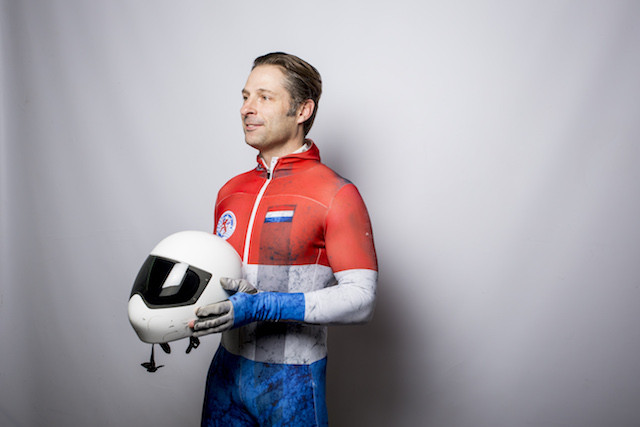For engineer and skeleton athlete Jeff Bauer, the last few months have been one long race to qualify for the Winter Olympics and gain nationality.
The American citizen, who took up skeleton for “fun” four years ago, last year set his sights on competing for Luxembourg in the Winter Olympics in Pyeongchang.
Having lived in Luxembourg from the age of 6 to 17, he took a sabbatical from his job as manager with Triumph Gear Systems to focus on qualifying.
As a self-funded athlete, he benefited from development packages for smaller nations, giving him track time, accommodation and coaching in places like Whistler, Canada. “Whistler was a crash course. I thought I broke something in Whistler. I can’t believe I didn’t!” he said, adding: “At that track, I crashed more than in any period of time since starting, and by crash, I mean coming out of a corner and flipping or slamming into a wall.”
He took the knocks and bruises in his stride and went on to have a strong season, recording speeds of 135km/h.
So focused was Bauer on improving that before he knew it, he was close to qualifying and eventually secured a place for Luxembourg just two weeks before the start of the games. But, that left one problem: he still needed to get nationality.
Bauer had grown up in Luxembourg when his father started a job here in 1981. He studied at what was then the American school and was actively involved with the sports community, playing junior basketball for the national team. But he never got the passport.
When the nationality law changed on 1 April 2017, he set about taking language classes. Bauer already had a residence in Luxembourg and split his time between training and his grand duchy home to get his language level up. He secured a last-minute place in the language test when someone dropped out.
Although he passed with flying colours, it was the processing of his paperwork that eventually proved to be the toughest hurdle. Despite the fact that the organisers extended the deadline three times, Bauer did not get the green light in time and his place went to another athlete.
Personal journey
Broken-hearted and crestfallen after learning the news just ten days from the games, Bauer’s disappointment is not only that of a natural competitor’s--competing for Luxembourg was also a deeply personal journey.
Three generations of Bauer’s family have lived in Luxembourg. When he conducted family research as part of his application for citizenship, Bauer learned that both his grandfather and great-uncle were in Luxembourg during WWII, fighting on the side of the allies.
His grandfather even marched through the town where Bauer has a residence, Larochette. His uncle, meanwhile, spent his convalescence from an injury in a farm in Itzig, not far from where Bauer’s family had lived in the 1980s. After the war, his grandfather returned to Luxembourg with his father to work for Goodyear from 1958 to 1961.
When Bauer’s family returned to the US in the 1990s, he said his parents separated, strengthening his attachment to his time in the grand duchy.
“When we talk about doing skeleton, being on the national team for Luxembourg and then this, it’s not just doing a sport, it’s doing something more for the family heritage,” Bauer said. It means that Matthieu Osch, competing in the slalom/giant slalom, will be the only athlete in the Luxembourg delegation this year.
